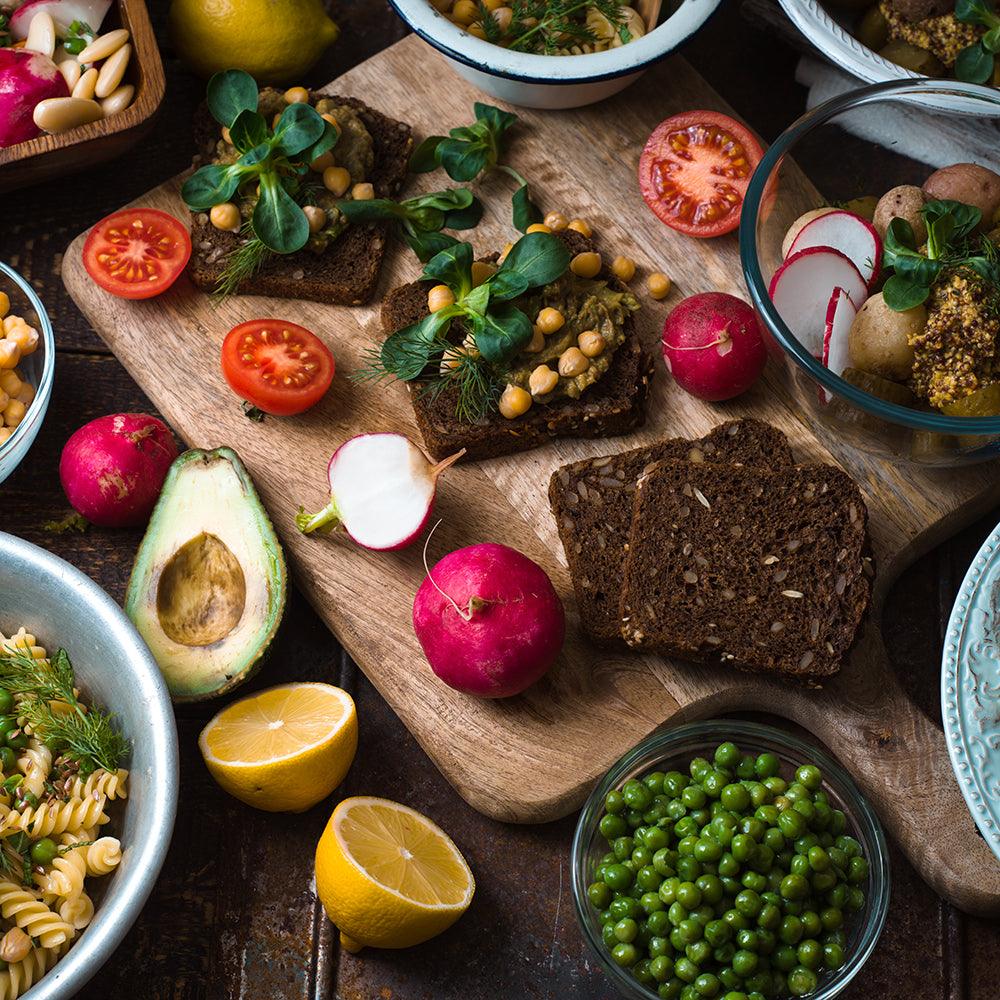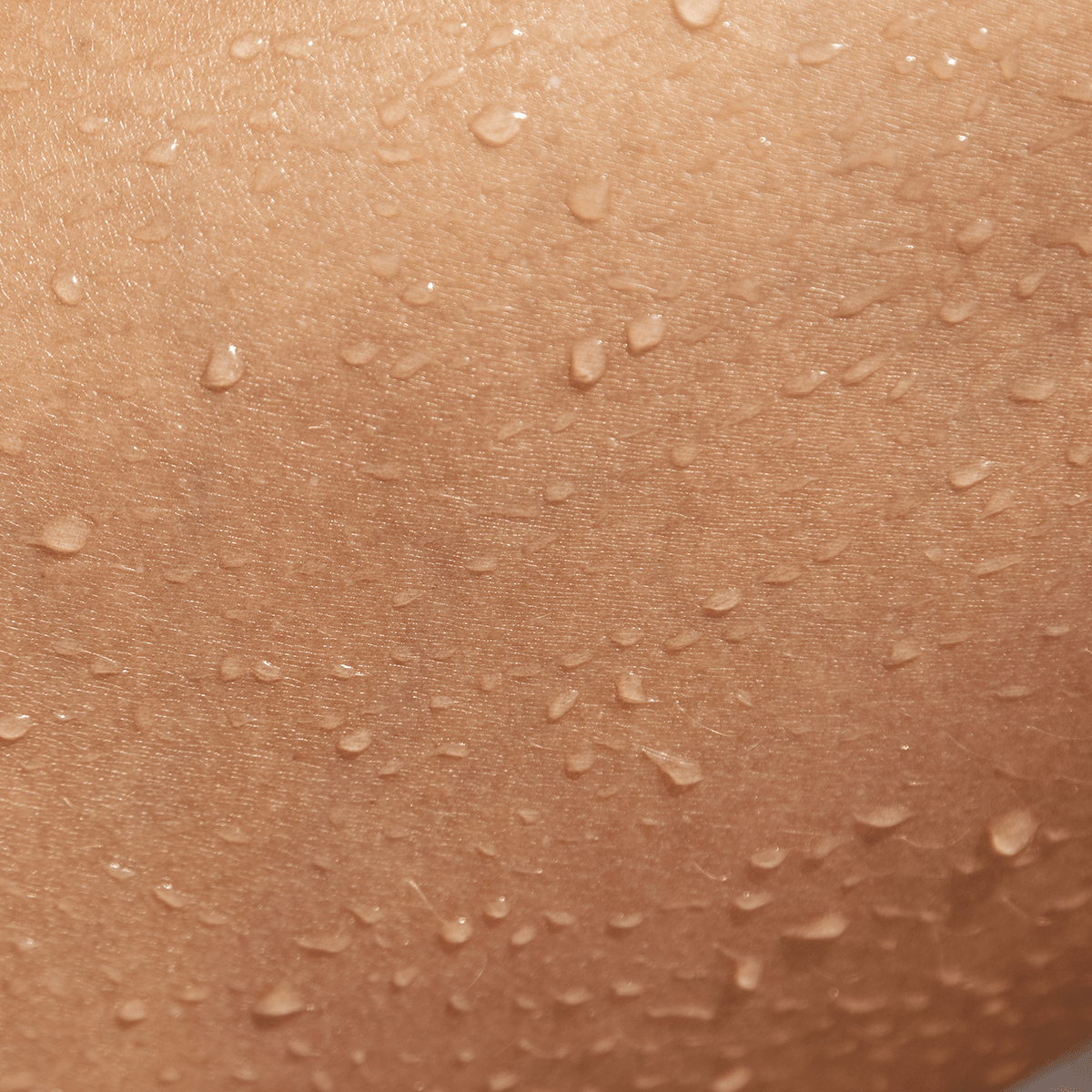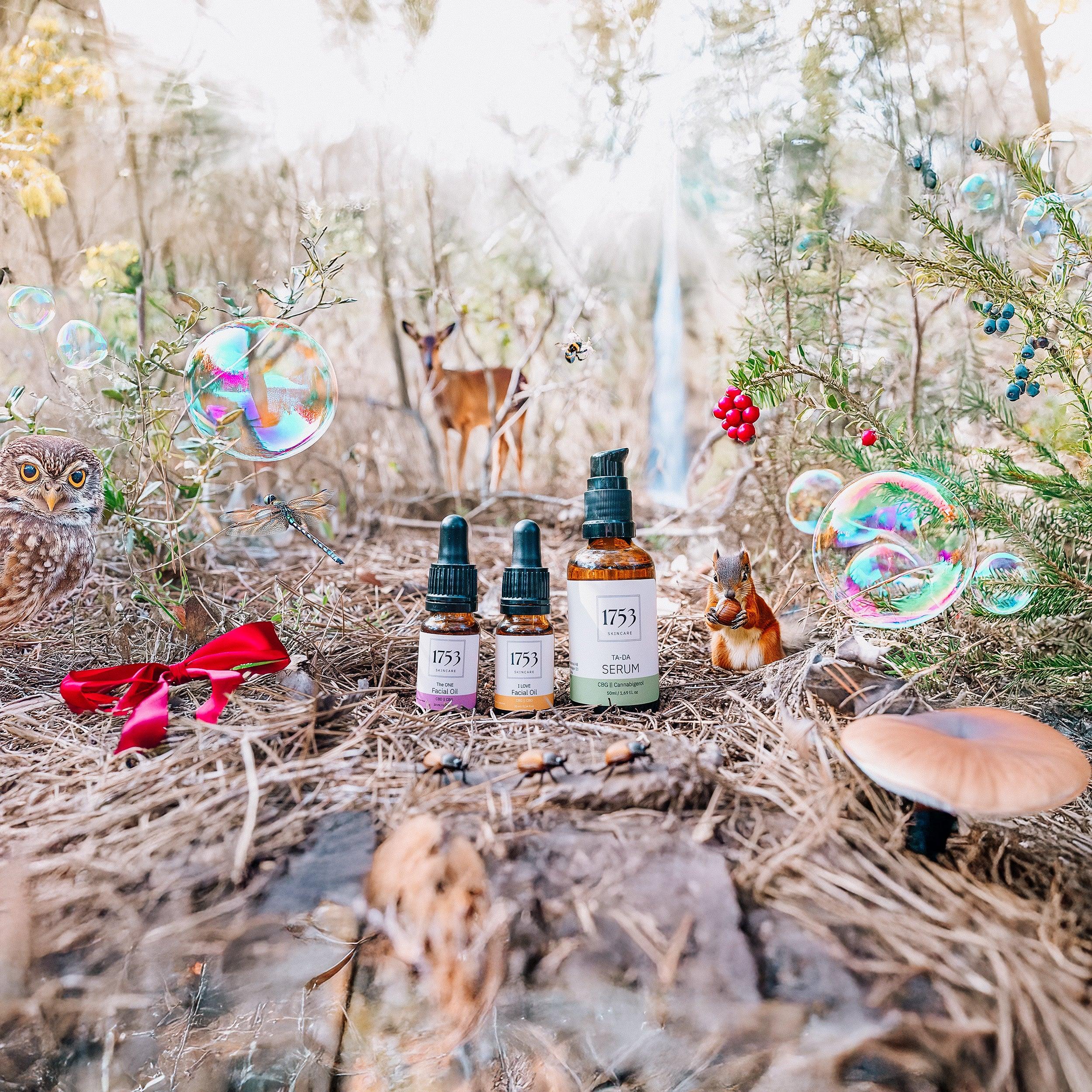How does diet affect my skin?

Our skin is the body's largest organ and acts as a mirror for our internal health. What we eat can significantly impact the condition of our skin. By understanding the connection between diet and skin health, we can make conscious choices that not only benefit the body but also give us radiant, healthy skin. In this post, we'll take a closer look at how different foods can affect the skin and what you should consider to promote healthy skin.
The Connection Between Diet and Skin Health
Diet and skin are intimately linked. When we eat nutrient-rich foods, we support the skin's natural ability to renew and protect itself. Conversely, a nutrient-poor diet or one that includes harmful ingredients can lead to issues like acne, dryness, or premature aging. Skin health is also affected by our immune system and inflammation in the body—something that can be controlled by what we eat.
Inflammation and Acne
Acne, a common skin issue, is often caused by inflammation. Foods high in sugar and refined carbohydrates, such as white bread, candy, and sugary drinks, can lead to increased inflammation levels in the body. These foods raise insulin levels in the blood, which in turn can trigger increased sebum production, reduce sebum quality, and clog pores—creating a perfect environment for acne formation.
Foods with a high glycemic index (GI) cause rapid blood sugar spikes and may contribute to worsening acne. In contrast, a low-GI diet, such as one rich in whole grains, legumes, and vegetables, can help keep insulin levels stable and reduce the risk of skin breakouts.
Dry Skin and Nutritional Deficiencies
Dry skin is often a sign that the body is not getting enough moisture or the right types of fatty acids. Omega-3 fatty acids, found in fatty fish like salmon, mackerel, and sardines, as well as in plant sources like chia seeds and walnuts, are known to reduce inflammation and help the skin retain moisture. A deficiency in these fatty acids can lead to dry, unbalanced, and flaky skin.
Additionally, a lack of vitamins such as vitamin A and E can weaken the skin's barrier function, making it more prone to becoming dry and irritated. Vitamin A, found in carrots, sweet potatoes, and spinach, helps the skin maintain a stable cell renewal process and keeps it elastic. Vitamin E, present in almonds, avocados, and sunflower seeds, acts as an antioxidant that protects the skin from harmful free radicals.
Skin-Friendly Foods
Including the right types of foods in your diet can contribute to healthier skin and reduce the risk of issues like dryness and acne. Here are some examples of foods that are good for the skin:
- Omega-3 Fatty Acids: Fatty fish like salmon, mackerel, and sardines are excellent sources of omega-3. These fatty acids reduce inflammation, which can help with acne and rosacea and promote skin moisture.
- Antioxidants: Foods rich in antioxidants, such as blueberries, spinach, and nuts, help protect the skin from free radicals—molecules that damage skin cells and accelerate aging.
- Vitamin C: Oranges, bell peppers, and strawberries are rich in vitamin C, which plays a key role in collagen production, the protein that keeps the skin firm and youthful.
- Zinc: Zinc is a mineral that helps regulate sebum production and can reduce inflammation in the skin. Oysters, pumpkin seeds, and legumes are excellent sources.
- Probiotic Foods: Yogurt, kefir, and sauerkraut are full of probiotics that support a healthy gut flora. A healthy gut flora can reduce inflammation and help prevent acne and eczema.
Foods to Avoid for Better Skin Health
There are also certain foods that should be avoided or limited if you want to promote skin health:
- Fast Food and Fried Foods: Foods high in bad fats and sugar, such as fast food, can increase inflammation in the body and contribute to skin issues like acne and redness.
- Sugar: Too much sugar can lead to faster breakdown of the skin's collagen, resulting in wrinkles and loss of elasticity. Additionally, high-sugar diets can cause increased insulin levels and promote acne breakouts.
- Dairy Products: Some studies have linked dairy products to increased acne, especially in individuals sensitive to hormonal changes caused by milk and its derivatives.
Eating a balanced diet full of nutrient-rich foods can work wonders for your skin. By focusing on anti-inflammatory fatty acids, antioxidants, and essential vitamins, you can promote healthy skin and prevent issues like acne, dryness, and premature aging.
At the same time, it’s important to reduce the intake of sugar, fast food, and dairy products if you want clearer and more radiant skin. As with all aspects of health, balance is key, and by making conscious choices, you can both feel better and look better.
Sources:
1. Burris, J., et al. (2013). "Glycemic index, glycemic load, and acne: a systematic review of the evidence." *Journal of the Academy of Nutrition and Dietetics.*
2. Smith, R. N., et al. (2007). "The effect of a high-protein, low glycemic-load diet versus a conventional, high glycemic-load diet on biochemical parameters associated with acne vulgaris." *Journal of the American Academy of Dermatology.*
3. Calder, P. C. (2016). "Omega-3 fatty acids and inflammatory processes." *Nutrition Reviews.*
4. Boelsma, E., et al. (2003). "Nutrition and skin: lessons for anti-aging, beauty and healthy skin." *British Journal of Nutrition.*
5. Zouboulis, C. C., et al. (2014). "Nutritional factors and acne." *Dermato-Endocrinology.*




Comments